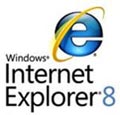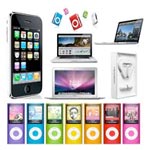It would not be wrong to state that Coca-Cola is the world's largest "language". When we say the words, "Coca-Cola", it conjures up a set of meanings that was built-up over generations, across geographies, across demographics, across socio-political persuasions and across cultures.
The brand uses colors, typefaces, words, icons, emotions, sounds - all put together, they form the language of Coca-Cola, a language that encapsulates what the brand is, but also one that promises what the brand can be for those that don't know.
One of the most amazing features of learning a new language is that fact that it expands our horizons far more than just a new set of words and symbols used to name and refer to things. French is not only a language, it provides you with an entrance into a new culture, set of emotions, set of idioms, prose, music, that collectively extends the horizon of those who learn it. By learning a new language, you learn about a whole new set of experiences. You learn to name, understand and interpret a new way of thinking, feeling and doing. It opens-up a new world of experiences.
I remember when I visited Beijing for the first time years ago: it was such a unique experience, as almost everything I saw, was different from what I knew. The impact of a new language is similar: it redefines much of what we know and tells us there are multiple universes of understanding out there, and that we actually know very few of them.
What there still is to discover
Subtly, language reminds us of what there still is for us to discover, so it is profoundly inspiring. That is also why it is often said that to travel is to learn more about ourselves: it is by going "outside" of ourselves, that we get to know "what is inside" better!
On the other side, our home language again reminds us of what we know, who we are: it is safe because we know its boundaries, we cannot be surprised, and it does not threaten us. We know how to deal with it. That is often why home language is so important to people: it is the way they learnt to interpret the world around them.
Few people will argue the effect of great prose on us - just compare American writer John Steinbeck, South African writer Andre Brink and Shakespeare. Similarly, when we start learning about a new artist, it also opens-up a new set of experiences, and we can see, feel and experience the world they lived in. This expands our own universe to stretch that much further: we know more, feel more and understand more. That is why new experiences have such magic in what it enables us to do.
Universal language
Many brands use a universal language: one that has come to define a certain set of meanings, often associated with a given industry. When you listen to bankers speak, read their advertising, talk to them, view their websites, they portray a standardised set of experiences you associate with that industry. There is a comfort zone in such an "industry-language", similar to the comfort zone of one's home tongue. Similarly, the fashion industry, the retail industry and the automotive industry, has its own set of meanings we have learnt over generations. It creates an over-arching "comfort-zone" of how things are.
When an industry is in trouble, the very words they use get tarnished. "Security" and "trust" in banking no longer mean the same things it used to!
Often, this comfort zone is so "safe", that it no longer challenges us: almost all curry powders use yellow and brown in their packaging, so they all look very much the same, promise very much the same and feel very much the same. I recall a time when it was said that food should not be packaged in blue, black or red.
Fragrance advertising often uses naked bodies, scantily clad bodies, mostly in expressive, sensual or even sexual positions. The entire industry has created its own language. Inasmuch as this language is useful at some point in the evolution of marketing, it is not useful when one tries to communicate another meaning, dissimilar from the generic meaning the industry defined.
For instance, banks will need another language today.
Brand redefining
Once in a while, a brand redefines a whole new language: where it changes everything about the way we think about the industry and in particular, that brand. One can argue this is the very best way to create meaning in stale industries, and that the magnitude of this meaning is a function of how widely a new language is defined.
Microsoft wanted to become the operating system for the computer era. Bill Gates wanted MS to be the standard in the industry hence he made it cheap and accessible, so that it gradually became the default operating system for computers everywhere.
What Microsoft did, was to literally create a new language of operating software. A set of interface protocols, which enables a person to think like an ordinary person, type in ordinary commands, yet do things that were extra-ordinary and fast. Things that to that day, could only be done by highly skilled, experienced programmers. The user interface capability of MS enabled ordinary people to speak a new language. This enabled new sets of experiences.
But MS did not stop there, it created subsequent operating software that is even easier to engage with; it created the icons and the names associated with it; it created the colors and visuals that enable us to experience more than the words we see. Layer upon layer, it created a deeply textured language: one that is accessible to all. And even if not all of it worked, as a collective, it defined a new language, and through that, a new universe for many people.
Similarly, a brand like the The New Yorker, has a unique language. It is unlike any other magazine and it enables its readers an experience they cannot get anywhere else.
Going much further
One can argue that Apple went much further. It created a language of interface supported by an eco-system, that opened-up a new universe for many people. It is not only what it enabled you to do; it is also the very fact that enabling broadened horizons in their own right, as much of what it told us, were in turn tools that opened new horizons. It is not only the fact that an iPod is a unique MP3 players supported by iTunes, it is the fact that it created a new set of experiences, well portrayed in the silhouettes advertising campaign when it was launched.
Apple products look unique; their lines are soft and rounded, never square; they are packaged uniquely to maximize surprise; they are called a given way ("i"); they work uniquely; they use a unique software interface; they sell in stores that look unique; their staff have a given attitude; their products have sets of words and icons unique to it (iMac; iPod); have unique support systems (iTunes); they have unique on screen commands.
Apple never takes the generic and make it its own, it creates a new generic language all of its own. Every aspect of the brand multiplies the uniqueness of the user experience with the brand. In that respect, it is exactly like learning Mandarin or visiting China for the first time: the user experiences a world so unique and different, that he or she is enchanted by it. This takes the definition of "user experience" onto some many new platforms that it is difficult to reduce the products to pure functionality. Or even to try to compete on sheer hardware and software alone, like Samsung tries to do. You cannot compare a new language with the odd new word here and there.
Apple created an entire "eco-system of language interface" with meanings and emotions attached to it. Put together, Apple is a unique language. This language adds such brand experience value to the end-user, that it transcends categories of product.
The deeper the set of meanings associated with a brand, the deeper its potential user interface: to define a new language for a brand, is to define a new way of thinking, feeling and doing for consumers.
Firm foundation
Yet, all the languages named above, have a firm foundation... you can only stretch to the limits if you have defined the territory. That is why "The Crazy One's" is such a good summary of the "roots" of the Apple value system.
If a brand can do that, why then fall into the trap of using someone else's language: the words everyone knows, the words everyone understands, the words that have become devoid of meaning. No brand can ever be distinctive, if it is simply more of the same of what is already there.
It takes time and deep thinking to create such a new language, it does not just happen. Originality is a scarce commodity, but it is worth doing!










































